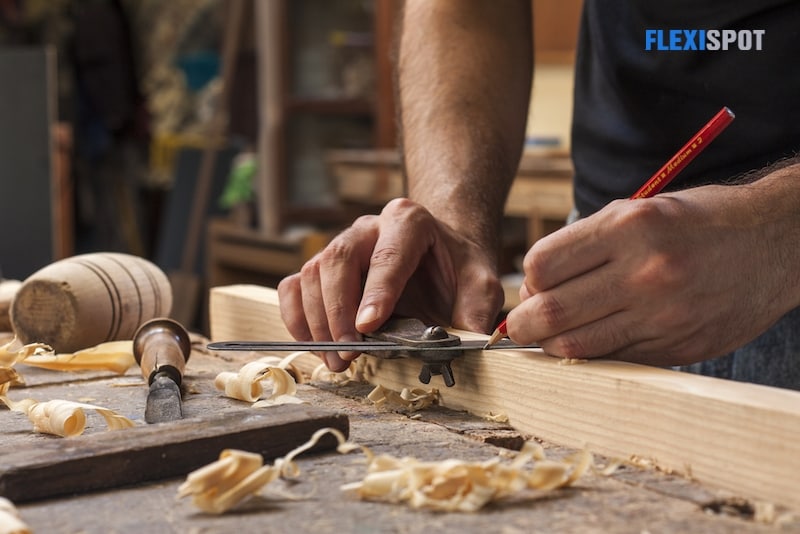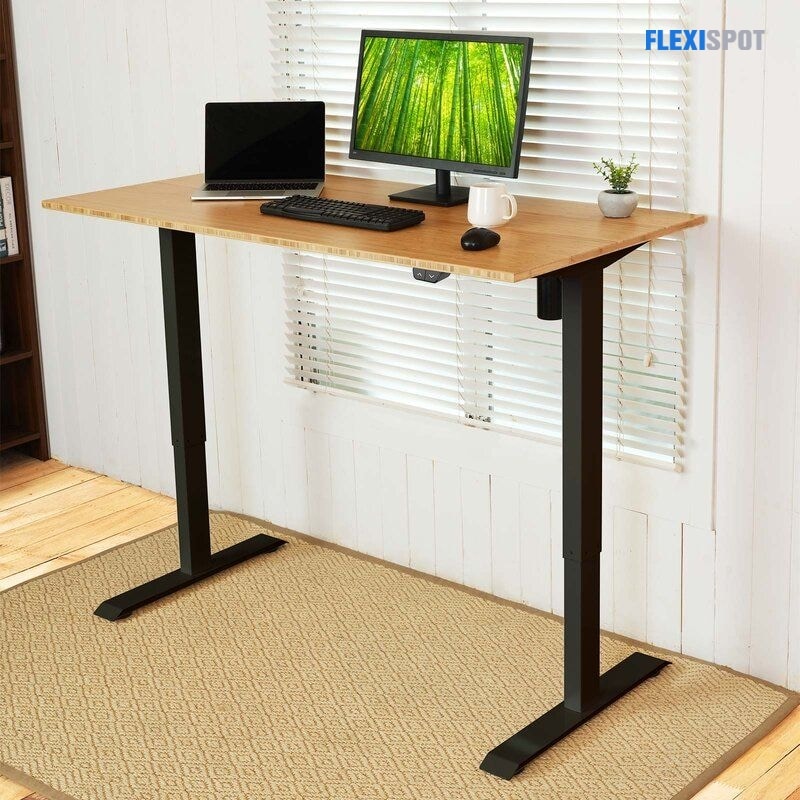The name of the game is changing. More and more companies are going sustainable, including businesses in the furniture industry.
When fashion picked it up, many were not willing to change their consumption habits and pay more for clothes. But when they were thrown with cold hard facts about fashion’s growing global waste and the other ways it contributes to climate change, consumers began to be more mindful of their choices and go for brands with a commitment to the environment. Because of the shift in consumer behaviour, big and small brands followed suit. Sustainability in fashion has gone beyond just being a buzzword and has transformed into a growing sector in the trillion-dollar industry.
The furniture industry has been following suit. More companies, like FlexiSpot, are starting sustainability efforts such as donating to nonprofit green organizations and making sure to source materials that are not harmful to the environment.
On one hand, sustainability in fashion is important because it has reached the pinnacle of overconsumption. The industry used to sell just four seasons (summer, autumn, winter, spring) of changing one’s wardrobe but fast fashion, throughout the years, has introduced 52 micro seasons that have made more Americans and humans all over the world buy clothes more than they need to. These clothes are sold at such a low value that the hands who make them are hardly paid a living wage to raise their families. Because of created and increased demand, more clothes are made and discarded that fill landfills with bags of clothes never to be seen on a human body. Needless to say, the industry needs a revolutionary shift.
In the furniture industry, on the other hand, people don’t buy as often as they buy clothes. Only when moving houses or deciding to renovate a room do they feel the need or the urge for new furniture. It’s safe to say that a sofa or a bed lasts more than three years without changing in a household. So why is sustainability important in the furniture industry? We break down some reasons as to why we think it’s important to go the sustainable route in furniture for both the consumer and the producer.
1. Sustainability in the furniture industry is important because it recycles materials to build new furniture.
We can all agree that we have exhausted Earth’s resources, and we will keep on doing so with the growing human population and the unwillingness of industries to make a radical change. Sustainability in furniture would encourage the recycling of materials. Take for instance wood furniture as easy to recycle. Just destroy a non-functional cabinet and use the scraps of wood to make a new piece of furniture with a different purpose. Recycling allows the industry to extend the life cycle of its produce.
2. Sustainability in the furniture industry makes the furniture last longer.
In a commercial sense, sustainability is essentially lengthening and maximizing the life of a product to have none or minimum waste towards the end. When you employ sustainable practices and use more eco-friendly and renewable materials such as bamboo and wood, it makes furniture more durable and even sturdier. If consumers buy more eco-friendly furniture, then it will most likely last longer in their homes. If companies make more sustainable furniture, then they are giving more quality products to their consumers and could also price it higher than usual.
3. Sustainability in the furniture industry will avoid the use of harmful chemicals.
It’s better for everyone’s health when furniture only undergoes natural processes and production does not make use of harmful chemicals. It protects not only as humans but also the environment that suffers from the use of these chemicals.
4. Sustainability in the furniture industry helps local markets.
Sustainability in furniture involves reviewing supply chains and making them shorter to lessen a company’s carbon footprint. In this way, local markets are empowered and are helped by the enterprise. If imported, small business owners and furniture makers are also helped in other countries.
5. Sustainability in the furniture industry makes furniture look better.
Because it’s made of 100% wood for example, instead of replicating it with something synthetic, sustainable furniture naturally looks way much better.
6. Sustainability in the furniture industry promotes fair labour conditions.
Being a sustainable business also entails being ethical in all processes involved during production and distribution. When companies decide to be sustainable, they must make sure that all their furniture makers and everyone in the supply chain are paid living wages and work in good labour conditions. A business only becomes sustainable if its employees are given the environment and the benefits that they deserve.
Flexispot and its Continuing Commitment to Sustainability
It may not be a work in progress but Flexispot is one furniture company that’s the commitment to do better for society. The company’s core mission has always been to improve the lives of its customers, a mission that it has been accomplishing one step at a time. Flexispot carefully assesses all of its decisions and the impact it would have on the lives of its customers, communities, and the planet. The company acknowledges that it has just started and is only at the tip of the iceberg. But even though it’s still far from its goals, it wants to inspire others to start now, small or big.
Flexispot has so far planted 500 trees in various areas around the world through its partnership with the One Tree Planted Project. Flexispot pledged to plant one tree for every purchase of its sustainable bamboo-made products.
More sustainable materials for its desktops are being sourced and taken to the headquarters. One of the company’s choices of material is bamboo because it grows faster and in greener conditions.
Packaging was also one of Flexispot's first targets; it has been using recycled materials to package every product sold.
FlexiSpot has also committed to providing healthy solutions and products for their clients to improve not only their physical health but also their psychological well-being. FlexiSpot believes that with the right physical and mental state, their clients can make a more positive impact in their lives.
The company’s bamboo production and manufacturing also provide well-paying stable jobs for local residents in parts of Asia that need social and economic stability.
Lastly, the company has not made an environmental claim but rather has laid out a clear blueprint for the next years to come: donate $10,000 to a nonprofit green organization, plant 1,000 trees globally with One Tree Planted and help 400,000 people improve their working conditions.
Flexispot hopes to work together with like-minded individuals in securing a more sustainable world for the present and future generations.



